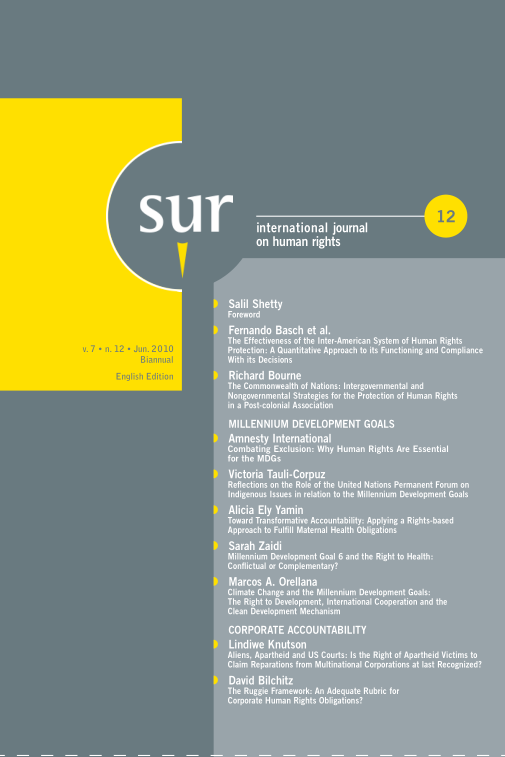Millenium Develeopment Goal 5--reducing the rate of maternal mortality by three-quarters by 2015 and achieving universal access for reproductive health--is far from being achieved. Despite increasing efforts made to reduce maternal deaths, it is considered that this goal is the furthest of all MDGs from reaching its target.
One of the biggest criticisms of the MDG process is the lack of accountability, addressed in a recent article published in Sur–International Journal on Human Rights. Alicia Ely Yamin, CESR’s board chair, discusses how a human rights-based approach offers such accountability and examines the most effective way to introduce “transformative accountability” in the fulfillment of maternal health obligations.
Yamin advocates for an approach that goes the beyond the traditional human rights model of “a violation, a violator and a remedy.” She encourages addressing more systemic and institutional factors such as social and economic status, gender and ethnic inequality and lack of education. She asserts that accountability for the improvement of maternal health should be about promoting systemic or institutional change, needed for women to enjoy their right to maternal health, rather than punishing lack of fulfillment by the state.
The article highlights vital elements in creating transformative accountability: development and implementation of a national plan of action; budgetary analysis; monitoring and evaluation of programs based on appropriate indicators; and mechanisms for redress, facility-level initiatives and donor accountability.
